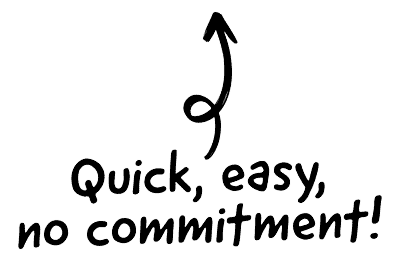Building success in any business is a tough nut to crack, and with both business and consumer habits continually changing, the race to keep up when it comes to multi-channel is on.

Multi-channel is a word that’s bounded about like the norm in 2016, and if you fail to adopt this approach then you will certainly miss out to your competitors. A combined approach can help to ensure you are capturing all available markets, and allow you to build retail success.
In a tech obsessed world, it’s easy to see why both businesses and consumers are just so infatuated with ‘online’, with the world’s four largest online markets set to reach £645 billion by 2018 it’s a force to be reckoned with.
 Cutting edge payroll software
Cutting edge payroll software
- Powerful and easy to use
- HMRC & RTI compliant
- Used by payroll pros
 The CRM platform to grow your business
The CRM platform to grow your business
- Great for entrepreneurs
- Powerful data analytics
- Manage sales and data
 Powerful web builder and advanced business tools
Powerful web builder and advanced business tools
- Great for startups
- Powerful web page builder
- E-commerce available
 Supercharged content planning
Supercharged content planning
- Great for marketing
- Better than lists or sheets
- Manage social media
 Create a new website in 10 minutes. Easy.
Create a new website in 10 minutes. Easy.
- Launch your website fast
- Powerful data intuitive
- No coding skills needed
Yet, it’s still important to not shy away from the benefits that offline can offer, and with the lines between both continually blurring, a combined multi-channel approach really is the way to go.
Delivering a cross channel experience, isn’t easy but this guide has all you need to know to ensure you deliver a successful multichannel strategy.
Monitor social media
Businesses would be extremely naïve to think they didn’t need a presence on social media, no matter what business you operate being online not only helps promote your business, but adds to your credibility too. Think of social media as future proofing your business, online is going from strength to strength, so jump on the train before it’s too late.
Whilst there are a wealth of platforms out there knowing where to begin is one of the biggest hurdles. Start by deciding which platforms work best for you and your business, it’s also important to understand where your audience are most active. Once you’ve figured this out, begin building your channels and relationships online.
Social media content should be honest, engaging and always serve a purpose. When it comes to social it’s essential you remember that it isn’t always about promoting your latest product, take the time to build up your brand image. You should be selling your brand to your audience, so talk in a tone that relates to your brand, and interact in the way you brand would if it were a person.
Don’t leave your social media accounts unattended either, for many customers it’s the place they go to not only sign their praises, but also bring you down too. If you’re inactive when it comes to responding to comments, it could be a little like leaving a candle unattended, and a fire could soon develop if you aren’t careful. There are a number of social tools out there which can help you to manage your accounts, with free and paid subscriptions available.
Don’t forget CRM
In any relationship it’s essential you are attentive to their needs, and this also rings true for the retail/consumer relationship. Customer relationship management systems can not only help you to manage you customer relations but improve customer satisfaction and your businesses performance.
Poor customer service, results in relationships ending with a survey by DMC Software finding that 71% of consumers have done just that after poor brand relations. Customer satisfaction isn’t something which develops overnight, but a good CRM system can go a long way in helping you implement a successful relationship strategy.
A CRM system should result in an increased retention rate and provide you with an effective way to manage customers. The more you know your customers, the more likely they are to stay with you. A happy customer equals a happy business.
Whether you want to segment customer data by preferences, demographics or more, to ensure promotions are only sent to relevant customers, or keep track of previous customer purchases to remind them to update their product to the newest release. It’s something businesses shouldn’t be without.
Reinforce your brand message
No matter the channel you are using, your brand should remain consistent. Naturally it will need to be tweaked to fit each platform, however your message should remain the same. Consider what it is you are trying to say to your customers and what you want to remain with them once their initial contact is over.
Brands are built through good customer relations, be that through person to person communication or through a screen, and a positive brand recommendation can help to make your business a success.
There are tons of similar products out there, but what makes one sell and not the other can be greatly due to the brand it’s from. Customer experiences build a brand, so emphasis should be on what makes your brand unique compared to the many others out there.
You may be a new start up, in which case you can begin to define your brand from scratch or perhaps you’re looking to overhaul your image. Either way, when creating your brand consider the following; who would your brand be if it were a person? What story are you trying to tell? How does your brand add value to your business?
Does it work for you?
Finally, whatever you are doing always question whether it really works for you and your business, jumping on the bandwagon simply because everyone else is doing it won’t win you any favours if it has little benefit to your customer or business.
Multichannel is amazing, because it gives you so many options when it comes to marketing your business, but you don’t need to be everywhere to be successful and spreading yourself too thinly could result in quantity not quality approach.
A digital presence is one area which you shouldn’t skip, whilst you may not invest in a full strategy at first (although you’d be foolish not safeguard your business for the digital future), you can ensure you are at least found online, and build up slowly over time.
Offline too has it benefits, and physical stores can not only increase your customer base but also add credibility to your brand. A tangible experience, and the option to interact with your brand face to face can help to cement the customer/brand relationship.
Multichannel isn’t going to go away, in fact it’s going from strength to strength, so ensure you’re deliver the best possible customer experience now to avoid playing catch up in the future.

